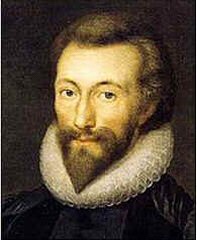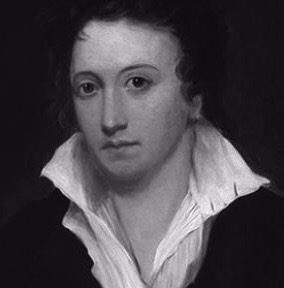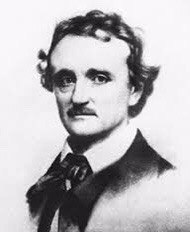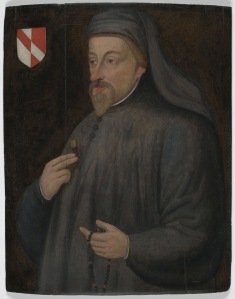The british poet John Donne (1572-1631) was one the most well known poets of the Elizabetan age. He was also a part of the the Metaphysical school of English poets. This poem takes place in the married bed. Husband and wife are awake after a night of sleep and love. Donnes message is a bit deeper than just the physical love between the married couple.
Look what is happening in the second Stanza. It starts with the line “And now good-morrow to our waking souls”…John Donne simply states that love is more than our physical bodies. We are souls as well. Pay some attention to the religious references: The story of the Seven Sleepers is present. Which function does it play here?
Themes: Love, the beloved, waking up in the morning

The Good-Morrow
I wonder, by my troth, what thou and I
Did, till we loved? Were we not weaned till then?
But sucked on country pleasures, childishly?
Or snorted we in the Seven Sleepers’ den?
’Twas so; but this, all pleasures fancies be.
If ever any beauty I did see,
Which I desired, and got, ’twas but a dream of thee.
And now good-morrow to our waking souls,
Which watch not one another out of fear;
For love, all love of other sights controls,
And makes one little room an everywhere.
Let sea-discoverers to new worlds have gone,
Let maps to other, worlds on worlds have shown,
Let us possess one world, each hath one, and is one.
My face in thine eye, thine in mine appears,
And true plain hearts do in the faces rest;
Where can we find two better hemispheres,
Without sharp north, without declining west?
Whatever dies, was not mixed equally;
If our two loves be one, or, thou and I
Love so alike, that none do slacken, none can die.














